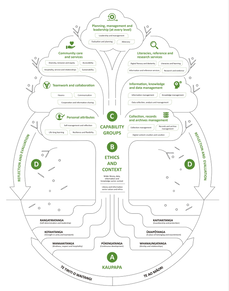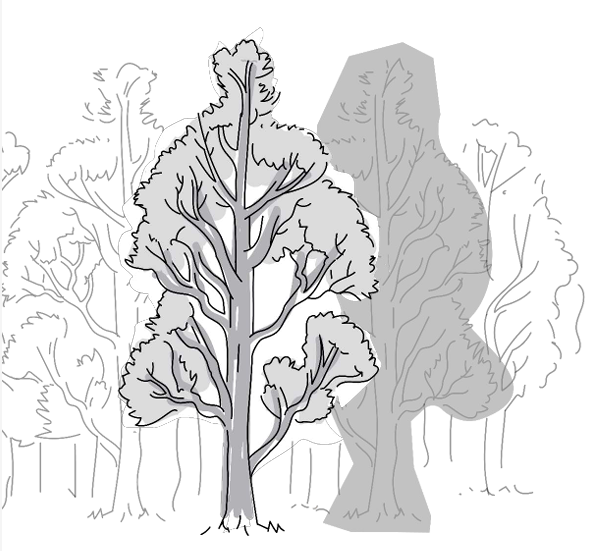
The framework has been developed by the sector, for the sector, with over 100 people engaging with the mahi from all around the motu. There was early involvement by the Kāpiti Coast District Libraries as a pilot site and Te Tōtara has been a focus for many of the Kākaho participating in the Whiria te Tāngata programme.
This year, LIANZA is leading a new phase of the project, engaging with those who are using, or considering using, Te Tōtara framework, pulling together supporting resources and widening its reach.
Te Tōtara framework was created as a bi-cultural framework, guided by a Māori lens and using a beautiful tōtara tree metaphor. Feedback on the framework has been very positive from sector leaders and from those teams who have been applying it as a workforce development tool. It is a valuable resource both for individual kaimahi and for team learning and development. Some library teams have shared it within their wider organisation too, as it aligns well with Te Tiriti o Waitangi partnership in the public service.
The trunk and the branches of the tōtara framework describe the ethics and context, and the capabilities, knowledge, skills and attitudes, relevant to the library and information environment. These relate well to the LIANZA Bodies of Knowledge and Code of Professional Conduct.
Ian Littleworth, Manager Future Libraries for Kāpiti Coast District Council, says the capability framework, whilst comprehensive, is intended to be worked through in “bite-sized chunks”. The Kāpiti leadership team are using the capability framework to inform their team’s learning and development goals for the year ahead. They have developed a template for kaimahi to record their individual goal or goals on a simple one-page worksheet. Kāpiti have found that this has led to more meaningful conversations which are specific to their context.
Many other sites have started using, or are considering using, Te Tōtara, ranging from small school library teams to university libraries with multiple specialisms. Several teams are reporting that they have chosen to start with Ngā paiaka | the roots, as their team development goal. Another area of development is digital capability, looking at the Literacies, References and Research Services capability branch of the framework.
Project manager, Annemarie Thomas, has gathered the available resources to support Te Tōtara and made these accessible on the LIANZA website here.
Annemarie has put out a call to the sector to those people using or wanting to use Te Tōtara and other workforce capability developments in their workplaces. Annemarie has set up a community of practice on LIANZA Connect to provide a forum to engage and share with others. Join the Community of Practice on LIANZA Connect here or contact [email protected] if you are not already on LIANZA Connect.
The project will share Te Tōtara more widely, sharing resources for the sector to pick up, adapt and apply Te Tōtara to their local context and putting into practice developments that support a strong and diverse workforce in their team.
If you are interested to know more, contact: [email protected]



 RSS Feed
RSS Feed